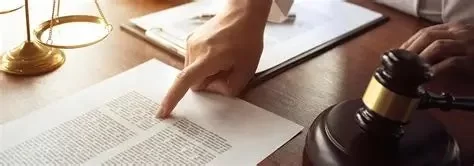
- 1 - Understanding Mental Health Defenses in Law
- 2 - Historical Context and Evolution of Mental Health Defenses
- 3 - Modern Application of Mental Health Defenses
- 4 - Landmark Cases and Real-World Examples
- 5 - Challenges and Controversies in Mental Health Defenses
- 6 - The Future of Mental Health in Jurisprudence
- 7 - Seeking Professional Legal Guidance
1. Understanding Mental Health Defenses in Law
Mental health defenses in modern jurisprudence serve as crucial mechanisms to ensure fairness in criminal trials. These defenses recognize that an individual’s mental state can significantly affect culpability and criminal responsibility. Legal systems worldwide have developed frameworks where mental illness may reduce charges, alter sentencing, or even serve as grounds for acquittal. For defendants and legal practitioners, understanding how mental health defenses function is essential in navigating today’s complex judicial landscape.
2. Historical Context and Evolution of Mental Health Defenses
The roots of mental health defenses trace back centuries, most notably with the M’Naghten Rule in 19th-century England, which established a legal test for insanity. Over time, jurisprudence evolved to include broader concepts such as diminished responsibility and competency to stand trial. These historical shifts highlight society’s growing acknowledgment that justice cannot be separated from an individual’s psychological state, laying the foundation for the nuanced defenses used today.
3. Modern Application of Mental Health Defenses
Today, mental health defenses go beyond a binary question of sanity versus insanity. Courts consider a spectrum of psychological conditions, ranging from severe psychosis to personality disorders. In some jurisdictions, defendants may plead “guilty but mentally ill,” ensuring accountability while mandating treatment. The modern system reflects an attempt to balance compassion for mental illness with the need to uphold justice, creating a more rehabilitative rather than purely punitive approach.
4. Landmark Cases and Real-World Examples
Several high-profile cases have shaped public understanding of mental health defenses. One notable example is the case of John Hinckley Jr., who was found not guilty by reason of insanity after attempting to assassinate U.S. President Ronald Reagan. More recently, courts have grappled with cases involving PTSD among veterans, raising debates on how mental trauma should be weighed in criminal responsibility. These examples demonstrate both the importance and the controversy surrounding mental health defenses in modern jurisprudence.
5. Challenges and Controversies in Mental Health Defenses
Despite their importance, mental health defenses face significant criticism. Some argue they are misused, allowing guilty individuals to evade full responsibility. Others point to inconsistencies between jurisdictions, where the same condition may yield different legal outcomes. Additionally, the stigma surrounding mental illness often influences jury perception, creating further challenges in ensuring fair trials. These controversies underscore the need for continued reform and public education.
6. The Future of Mental Health in Jurisprudence
The future of mental health defenses will likely involve greater reliance on neuroscience and psychiatric expertise. Advances in brain imaging and psychology may provide more objective insights into a defendant’s mental state. At the same time, increasing societal awareness about mental health could lead to more consistent and compassionate applications of these defenses. However, the balance between justice, public safety, and individual rights will remain a delicate issue for legal systems worldwide.
7. Seeking Professional Legal Guidance
Navigating mental health defenses requires both legal and psychological expertise. Defendants facing charges where mental health is a factor should seek specialized representation to ensure their rights are fully protected. At ESPLawyers, clients can access professional advice and representation tailored to the complexities of modern jurisprudence. With the right guidance, individuals can better understand their options and pursue fair outcomes in court.








